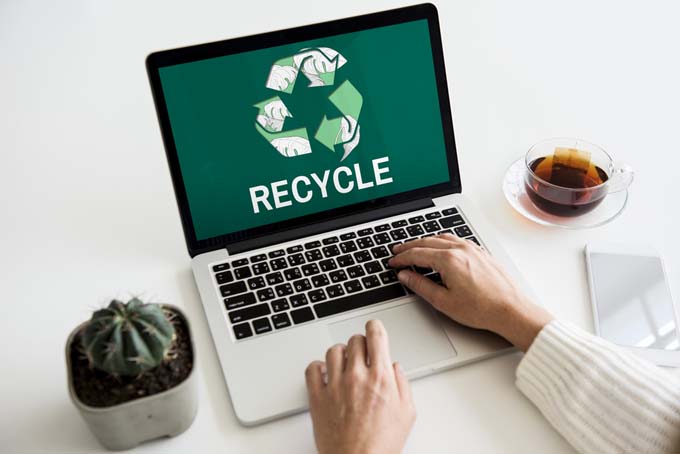Separate plastic bottle collection redefined
Studies show that it makes more economic and ecological sense to collect PET and plastic bottles separately than to send all plastic waste to a mixed collection. In addition to PET beverage bottle collection, Migros has therefore been consistently focusing on the separation of other plastic bottles since 2013. Their uniform type of plastic is ideal for the closed product cycle. Now a Migros industrial plant is testing the production of cleaning agent packaging.

Last year, in addition to the 9400 tons of PET bottles, Migros also collected 2800 tons of milk and other plastic bottles and sent them for recycling. This is a new record. Since the company introduced the expanded plastic bottle collection nationwide in 2013, the total amount of plastic bottles returned by customers has increased by 150 percent. And even in 2016, the increase over the previous year was still 350 tons (+14 percent).
For Heidi Oswald, Project Manager Environment, the steady increase is a sign that separate plastic bottle collection is becoming established: "With the introduction of plastic bottle collection, we redesigned the recycling walls of all branches in a new and uniform way so that it is clear at first glance which bottles go where when they are returned. In addition, we have raised awareness of the expanded plastic bottle collection among our customers directly at the collection points and through our communication channels. These measures have been well received."
Current comparison of collection systems
The topic of plastics recycling is the subject of controversial debate among experts and in cities and municipalities: How much collection and recycling makes ecological and economic sense? Should every plastic film and every plastic tray, such as meat packaging or yogurt pots, really be collected together with plastic bottles? The "KuRVe" study published in July by the Institute of Environmental and Process Engineering UMTEC at the University of Applied Sciences Rapperswil (HSR) and Carbotech AG examined the environmental benefits and costs of collection and recycling systems for plastics from households in Switzerland. The study was commissioned by eight cantons, various associations and the Federal Office for the Environment (FOEN).
Low environmental benefit of mixed plastic collections
The study shows that the mixed collection of plastic waste has only a relatively small ecological benefit, but at the same time incurs high costs, namely around 750 francs per ton. According to the study, the costs of disposal in the refuse sack are significantly lower at around 250 francs per ton. The additional environmental benefit achieved is also very low because not everything that is collected in mixed waste can be recycled. There is the difficulty of separating the numerous different types of plastic cleanly from one another. A considerable proportion ends up in incineration, and the promise of comprehensive recycling is usually not fulfilled by mixed collections.
Problem of foreign materials in separate collections
Mixed collection solutions for plastics, which are offered in some municipalities or by private companies, also have a negative impact on the quality of the existing separate collections and thus reduce their ecological benefit: In view of these mixed collections, consumers sometimes no longer understand what can be disposed of where, and therefore also throw other plastic packaging into the pure separate collections of the retail trade.
Using the example of separate PET beverage bottle collection, this means: One percent more foreign matter leads to 300,000 Swiss francs in additional annual costs for the collection system. In summary, it makes more economic and ecological sense to only collect plastic bottles that can be recycled back into new products due to the uniform type of plastic. The aim is therefore to be able to feed as much high-quality recyclate as possible back into industrial production.
Recycled polyethylene for packaging of cleaning agents
Migros is currently investing in a high-quality form of recycling - in closing the material cycle. For example, it is developing solutions for using recycled polyethylene (PE) from its separate plastic bottle collection in its own industrial operations. At Mifa, Switzerland's largest detergent and cleaning agent manufacturer, tests are currently underway to use recycled polyethylene in cleaning agent bottles. One challenge, for example, is the odor of the recycled material. It is difficult to remove the strong odors of lactic acid in milk bottles and perfume in detergent and cleaning agent bottles so that the material can be used again in odor-neutral form for packaging.
(Andreas Renggli is a communications consultant and editor at polarstern.ch)
Brief report of the "KuRVe" study at carbotech.ch and for the Migros Recycling Guide:









